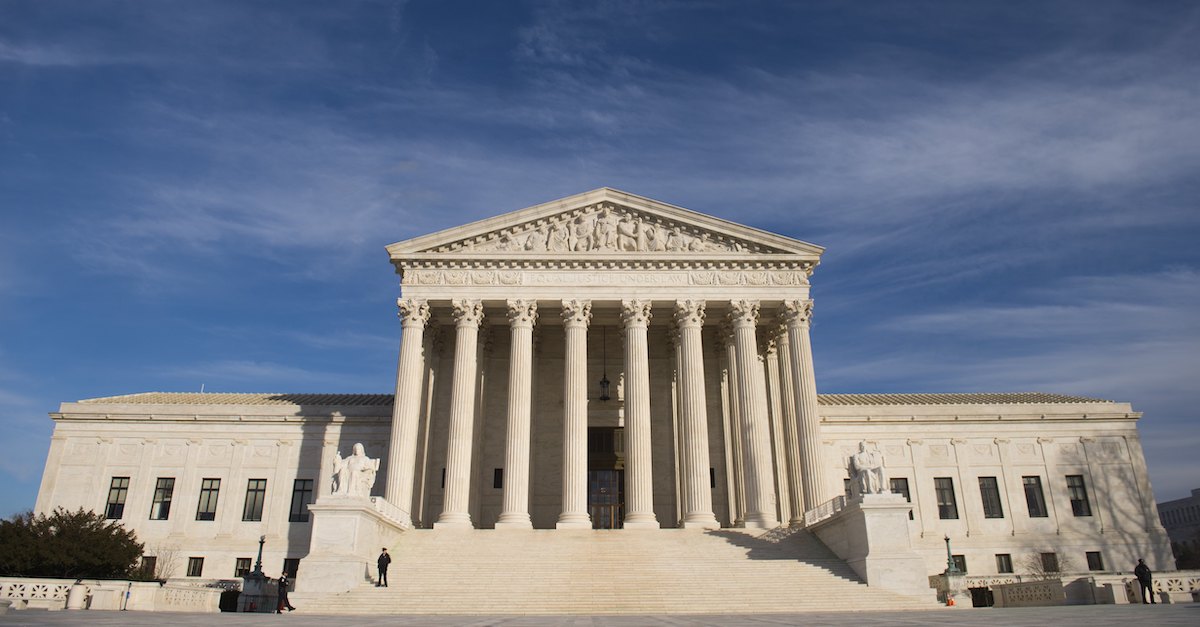
The U.S. Supreme Court on Wednesday allowed the Trump Administration’s asylum ban to go into effect nationwide, this after two nationwide injunctions at the U.S. District Court level were lifted by the Ninth Circuit Court of Appeals.
The Supreme Court granted the DOJ’s application for a stay of July 24 and Sept. 9 nationwide injunctions “in full pending disposition of the Government’s appeal in the United States Court of Appeals for the Ninth Circuit and the disposition of the Government’s petition for a writ of certiorari, if such writ is sought.”
Justices Ruth Bader Ginsburg and Sonia Sotomayor dissented.
A federal appeals court on Tuesday rolled back the nationwide injunction preventing the Trump Administration’s asylum ban – requiring any migrants passing through Central America to seek asylum in one the nations they pass through before applying in the U.S. — from taking effect.
In response to a “Renewed Emergency Motion” submitted by the Justice Department, the Ninth Circuit Court of Appeals issued an administrative order granting the government’s request to stay the nationwide injunction put in place Monday night by U.S. District Court Judge Jon Tigar of California. Tigar reasoned that a nationwide injunction was necessary because of the need to “maintain uniform immigration policy.”
Following Tuesday’s ruling, the administration’s asylum ban was set to take effect everywhere outside the Ninth Circuit’s jurisdiction – which included border states Arizona and California, as well as Guam, Idaho Hawaii, Montana, Nevada, Oregon, and Washington – until the appeals court was able to reach a decision on the merits of the case.
Tigar twice issued a nationwide injunction against the administration’s asylum ban, only to be overturned by the appeals court. Tigar, an appointee of President Barack Obama, first halted the policy in July, saying the injunction “would vindicate the public’s interest — which our existing immigration laws clearly articulate — in ensuring that we do not deliver aliens into the hands of their persecutors.”
Tigar reinstated the injunction Monday evening after opponents of the asylum ban presented the court with new evidence. The judge reasoned that his injunction was “supported by the need to maintain uniform immigration policy.”
As noted, Tigar also blocked the rule in July, but the judge’s injunction was overturned by the United States Court of Appeals for the Ninth Circuit. The appeals court ruled that Tigar “erred by failing to consider whether nationwide relief [was] necessary to remedy Plaintiffs’ alleged harms.”
“Based on the limited record before us, we do not believe a nationwide injunction is justified,” that court said.
The American Civil Liberties Union (ACLU), the Southern Poverty Law Center (SPLC) and the Center for Constitutional Rights (CCR) previously filed a lawsuit in response to the Trump Administration’s published rule to end asylum protections for most Central Americans. The key part of the rule:
[A]n alien who enters or attempts to enter the United States across the southern border after failing to apply for protection in a third country outside the alien’s country of citizenship, nationality, or last lawful habitual residence through which the alien transited en route to the United States is ineligible for asylum.
The plaintiffs argued that the new rule violated both the Immigration and Nationality Act (INA) and the Administrative Procedure Act (APA).
“The Rule directly violates Congress’s clear requirement that for a noncitizen to be denied asylum because of his or her relationship with a third country, the noncitizen had to be firmly resettled in that third country or subject to a safe third country agreement, as well as Congress’s requirement that asylum cannot be categorically denied based on an asylum seeker’s route to the United States,” the filing said. “It is also arbitrary and capricious.”
“Among other reasons, the Rule is arbitrary and capricious because, in adopting it, Defendants have failed to articulate a reasoned explanation for their decision, which represents a change in the agency’s longstanding policy; considered factors that Congress did not intend to be considered; entirely failed to consider important aspects of the problem; and offered explanations for their decision that run counter to the evidence before the agency,” the filing continued.
Jerry Lambe contributed to this report.
[Image via SAUL LOEB/AFP/Getty Images]